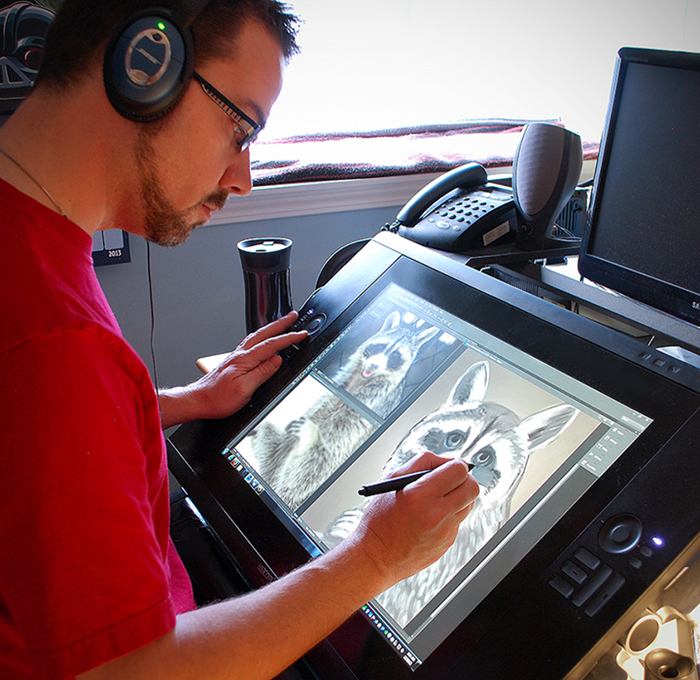 February is always a melancholy month for me. My motivation is at its lowest, and what little optimism I normally have is reduced to crumbs in the bottom of the bin. It’s also the month I’m most likely to feel that my business is a breath away from failure. When the weather is bad and it’s bitterly cold, as it has been this past month, the weight of that seems even greater.
February is always a melancholy month for me. My motivation is at its lowest, and what little optimism I normally have is reduced to crumbs in the bottom of the bin. It’s also the month I’m most likely to feel that my business is a breath away from failure. When the weather is bad and it’s bitterly cold, as it has been this past month, the weight of that seems even greater.
With year-end books being delivered to the accountant this week, a tax installment for the current year due next week, inventory and booth costs for next month’s Calgary Expo, and the ever tenuous nature of the newspaper industry, it’s easy to feel that it’s all about to end. Especially in February.
That’s called catastrophizing, kids. It’s a cognitive distortion common for a lot of people, self-employed or not.
Perception isn’t reality, but it sure feels that way. This time of year, I’m often staring at a blank page with no inspiration to fill it. In this business of creativity, that can get a little scary. My tendency to go right to the worst case scenario often triggers unsolicited advice from a familiar voice that resides in the darker corners of my mind. It’s loudest in winter. It never shuts up in February.
“Looks like you’re done. You had a good run, but who were you kidding? It’s not like you were any good at this anyway. You should probably start scanning the employment section, though I can’t imagine anyone will want to hire you with that 13 year gap in the résumé.”
One of the most common things I’ve heard from people over the years is that being an artist isn’t a real job, that all I do is draw and colour all day when everybody else has to work for a living.
It used to piss me off. Over time, I’ve realized that it’s a waste of time and energy to explain my own circumstances to people. Everybody’s job is hard but most people are under the impression that the conditions of their own employment (or self-employment) are the most difficult.
We’re all so busy worrying that other people don’t understand how hard things are for us, that we fail to realize that we just might be guilty of the same. One of the consequences of our outrage culture is that empathy has become scarce, despite our penchant for sharing tragic news articles on social media.
Thoughts and prayers. Repeat.
Some will tell me how great it must be to be an artist for a living, to draw and colour all day, to realize a dream. My initial thought is “Are you kidding me? It’s a lot of work, and I have to follow soul-sucking politics for a living, and it’s not just about creating the artwork, you have to sell it, and in a down economy, art is a luxury and when times are tough, people stop buying luxuries, and, and, and…”
In quiet moments of reflection, however, I realize that what they’re really telling me is that their own dreams and ambitions haven’t been fulfilled and they imagine mine have.
Our culture of showing off only our best adventures, photos, accomplishments, relationships, accolades and successes is creating unreasonable expectations in others and in ourselves. And even though we really do know that somebody’s carefully curated online persona is not an accurate representation of their reality, we can’t help but envy the fantasy, the media package they’ve chosen to share.
But that’s all it is, a promotional ad campaign for the lives most people wish they had.
If you find yourself looking to someone else’s life or circumstance with envy, take a moment to consider that there is some undesirable part of their experience that they haven’t shared with you. I guarantee it.
Those frequent perfect couple pics might be hiding an unhappy marriage on the rocks. The beach vacation full of selfies might have been funded with the last dollar on the fourth maxed out credit card before somebody claims bankruptcy. That always positive person who shares motivational memes might be masking their own pain from unrealized expectations and is desperately faking it until they make it.
We’re each our own hot mess, in one way or another. We’re all disappointed. We’ve all got pain.
Don’t envy somebody their job, their vacations, their car, their house, their stuff, their posts. You’re never seeing the whole picture. Heard that before? It bears repeating.
Now, there are certainly those whose example is worthy of admiration. History is full of people who’ve inspired others to greatness. But look to individuals because of their character, how they treat others, what their values are. Learn from them, but don’t deny your own potential.
The only real comparison worth making is who you want to be today against who you were yesterday, and it’s not measured in likes or shares. Last I checked, there aren’t tallies on tombstones, though I wouldn’t be surprised if that’s coming soon.
So much of this crap is just unimportant noise.
This landscape, these thoughts, this frustration, this angst, this is where I dwell in February.
But it’s finally March and at -1C today, it felt like frickin’ summer. Just as the bears are waking up and emerging from their dens, I expect to soon escape these familiar winter blues and find myself inspired by spring. I’m not there yet, but I soon will be.
Any day now.
Cheers,
Patrick
If you’d like to receive my newsletter which features blog posts, new paintings and editorial cartoons, follow this link to the sign up form.


